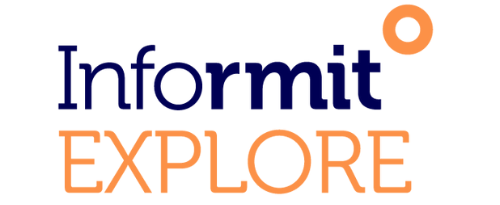Capacity Building School Libraries Conference
Thursday 3 and Friday 4 September 2026
Melbourne Convention & Exhibition Centre
School libraries continue to evolve as vital learning environments, where future-focused programs, inclusive practices, and responsive spaces work together to support student success. From embedding emerging technologies and building digital capability to promoting equitable access and representation, libraries play a central role in fostering informed, engaged learners.
SUPPORTING ASSOCIATION: SCHOOL LIBRARI ASSOCIATION OF VICTORIA
CAPACITY BUILDING SCHOOL LIBRARIES CONFERENCE SPONSOR
As centres for reading, inquiry and collaboration, they provide opportunities for creativity, critical thinking and personal growth. Strong leadership is essential in shaping programs, collections and spaces that respond to the changing needs of school communities.
The conference will focus on these major streams:
Future-Focused Libraries
School libraries play a vital role in equipping students with the skills and mindsets needed for an increasingly complex and digital future. This strand focuses on how library professionals are integrating emerging technologies such as generative AI, augmented and virtual reality, and assistive tools to enhance learning, accessibility, and engagement. Topics include digital and data literacy, ethical and responsible technology use, privacy and cybersecurity, and forward-looking approaches to service design that respond to evolving educational needs and the expectations of contemporary learners.
Equity, Access and Inclusion
Libraries serve as inclusive spaces where all students should see themselves represented, feel welcome, and access the support they need to thrive. This strand highlights practices that promote cultural safety, belonging, and equitable participation through thoughtful collection development, inclusive program design, and responsive service delivery. Areas of focus include supporting neurodivergent students, embedding Indigenous perspectives, addressing barriers related to language, disability or socioeconomic status, and creating environments that foster respectful and meaningful engagement with diversity across the school community.
Programs, Collections and Spaces
Strong library programs, well-curated collections, and purposeful spaces form the foundation of effective school libraries. This strand focuses on approaches that enhance day-to-day practice, including collaborative teaching partnerships, reading promotion initiatives, and resource design that aligns with student interests and curriculum priorities. Topics may include revitalising physical and digital collections, creating adaptable learning environments, and implementing hands-on programs that build inquiry, creativity, and engagement. Emphasis is placed on strategies that can be adapted to diverse school contexts and implemented with immediate impact.
Choose from one day or two day tickets. Tickets include Arrival tea/coffee, Morning tea & Buffet lunch, Certificate of Attendance (mapped to APST), attendance at Summit Social, access to The Education Show (the offical Expo of the Summit), Knowledge Centre & Classroom of the Future
Thursday 3 September 2026
*Program subject to change
9:00am
Welcome and Housekeeping
9:10 – 9:40am
Dr Kay Oddone, Lecturer, Course Director Master of Education (Teacher Librarianship), Charles Sturt University
Constellations of Practice: Recentering the School Library with Purpose and Possibility
School libraries are constellations of practice: linking people, ideas and possibilities across the shifting landscape of education. In a time of uncertainty, where school leadership support is uneven, the pressure to do more is unrelenting, and recognition is often absent, the school library and its staff continue to bring coherence, connection and care for both students, teachers and the school community.
This presentation invites participants to recentre their professional vision—not through reinvention, but by recognising the power of what already exists. Using the Know–Do–Be model as a reflective lens, we will explore how school library professionals already hold the knowledge, lead the practices and embody the values that sustain inclusive, future-focused and community-connected learning.
Rather than calling for more effort, this session surfaces practical, achievable shifts—through thoughtful learning design, ethical technology use, and responsive programming—that build capacity without burnout. Anchored in research and real-world examples, the presentation reminds us that school library staff are stars - present, persistent, and guiding the way forward even when they go unnoticed. Attendees will leave with fresh clarity, restored energy and renewed confidence in their role—not as outliers, but as essential connectors in the learning constellation of their school.
9:40 – 10:10am
Ela Sircelj, Library Manager, Loreto Kirribilli
Reigniting Passion, Renewing Purpose: The Power of Personal Inspiration in Building Stronger School Libraries.”
Building capacity in school libraries begins with the people who bring them to life. For many long-serving librarians, sustaining passion and purpose over decades can be both a privilege and a challenge.
This presentation explores how non-teaching librarians contribute to the heart of school life through academic support, reading advocacy, and community engagement, and how rediscovering joy in the role can revitalise both individual practice and the library’s wider impact. Drawing on real examples from my experience - including organising guest author visits with Markus Zusak, Tristan Bancks, Morris Gleitzman; hosting Breakfast with Books, Great Book Swap, and Write a Book in a Day events; supporting student wellbeing and life skills programs; and curating inclusive collections - I will illustrate how non-teaching librarians quietly build the learning capacity of entire school communities.
Participants will leave with practical strategies and reflective prompts to:
Recognise their own role in capacity building within the school library ecosystem.
Identify sources of inspiration and renewal to sustain long-term professional wellbeing.
Reignite their enthusiasm for library work after many years in the same environment.
10:10 – 10:30am
Q&A Panel with Dr Kay Oddone & Ela Sircelj to answer questions
10:30 – 11:00am
Morning Tea
11:00 – 11:30am
Informit
Media Literacy Across the Curriculum
How do we teach students to critically analyse media across the curriculum? Informit will demonstrate how Explore Media and the Australian Media Literacy Alliance framework make media literacy explicit and achievable. See practical classroom applications comparing news coverage, identifying bias, and developing critical thinking skills.
11:30 – 12:00pm
SLAV
School Library Toolkit
12:00 – 12:30pm
Lauren Kyte, Head of Library, Salesian College Sunbury
Building Connection and Visibility in School Libraries: The Three Cs Approach
How can school libraries build their visibility and strengthen their role within the wider learning community? This session explores one library’s journey to increase its impact through the Three Cs: Cohorts, Community, and Curriculum. Using the Ciantar Learning Common’s (CLC) work as a case study, we will share practical strategies for connecting library programs with student cohorts, building authentic community engagement, and embedding the library within the curriculum.
Participants will be invited to reflect on their own contexts, analyse key approaches taken by the CLC, and exchange ideas for transformative collaborations.
12:30 – 1:30pm
Lunch
1:30 – 2:00pm
Q&A Panel with Informit, SLAV & Lauren Kyte to answer questions
2:00 – 2:30pm
Virgina Hand, Teacher Librarian, Shellharbour Anglican College
Reigniting Reading Through Student Choice and Teacher–Librarian Collaboration: Literature Circles and Socratic Seminars in a Global Issues Unit
Engaging adolescents in reading is not just about fostering literacy, it is about igniting curiosity, critical thinking, and a lifelong love of learning. Adolescent reading engagement remains a key priority in contemporary education, and recent research highlights that when students are provided with voice, choice, and authentic opportunities to connect with texts and one another, their motivation and engagement increase. Literature circles and Socratic discussions are identified as effective strategies that promote deeper comprehension, critical thinking, and intrinsic motivation—key factors that underpin engaged reading and lifelong literacy development (Webber et al., 2023). By implementing these strategies, educators can foster a culture of curiosity and enjoyment while equipping students with the skills to think critically, communicate effectively, and take ownership of their learning.
2:30 – 3:10pm
Trish Trchala, Head of Learning Resources, Xavier College
Reading Lounges and Sustained Reading
After developing two reading lounges in the past 12 months, it can be seen how a change within a Library Space can alter the reading behaviour of students. Mr Sloth's Rainforest Reading Lounge for Year 3-6 and Sunny's Storyland for K3-Year 2 are examples of a new approach. Utilising Marketplace and a tight budget students are evolving into a new way of reading for pleasure in these spaces. Hear about new ideas within Junior and Senior School Libraries where sustained reading is the priority.
3:10 – 3:30pm
Q&A Panel with Virginia Hand & Trish Trchala to answer questions
3:30 – 3:45pm
Ask the Audience: Delegates share the one idea that they will work on next week
4.00 – 5.30pm
Summit Social - a networking event for exhibitors, speakers and delegates.
Friday 4 September 2026
*Program subject to change
9:10 – 9:40am
A panel of educational industry experts
Developing Critical Thinking Across the Curriculum
Hear from industry experts on how to support critical thinking across subjects. Using Australian research articles, primary sources, and multimedia content, see how students learn to evaluate evidence, assess credibility, recognise bias, and build informed perspectives through authentic, curriculum-aligned resources.
9:40 – 10:10am
Darlene Hill, Head of Department – Humanities and Library, Kepnock State High School
It Takes a Village: Building Student Capability Through Cross-Sector Library Partnerships
In an era where information literacy and community engagement are more vital than ever, collaboration between school, public, and state libraries offers a powerful catalyst for building student capability and confidence. This presentation explores the dynamic partnerships that can be developed between a school library, their public library and the state library, showcasing how cross-sector collaboration can transform teaching and learning.
This session will share case studies, student feedback, and curriculum examples that demonstrate the impact of integrated library partnerships. Attendees will gain practical strategies for initiating and sustaining similar partnerships in their own local spheres, with a focus on aligning library programs with curriculum goals and building enduring community connections.
Ultimately, It Takes a Village celebrates the collective power of school, public, and state libraries working together to empower the next generation of learners.
10:10 – 10:30am
Q&A Panel Industry experts & Darlene Hill to answer questions
10:30 – 11:00am
Morning Tea
11:00 – 11:30am
Roxanne Summer, Head of Libraries, St Bede’s College
Level Up: Using Gamification to Engage Boys in Reading
Many boys demonstrate a decline in engagement with reading, especially during high school as reading comes to represent work rather than enjoyment. This presentation will share how gamification has transformed the Reading and Research program at St Bede's College from a teacher-led battle field to a dynamic, rewarding and socially connected experience.
Integrating game design elements such as levels, challenges, leaderboards, and physical rewards, this session will illustrate how some basic principles of teenage motivation and the way research shows that boys approach reading can be harnessed to foster a culture where reading feel less like homework and more like a rewarding and enjoyable pursuit.
Attendees will leave with a toolkit of adaptable gamification techniques and examples of how competition, collaboration and choice can improve reading frequency and enthusiasm among boys.
11:30 – 12:30pm
June Wall, Digital Educator and Lecturer, CSU
Designing Future-Focused School Libraries: A Creative Approach to Spatial and Pedagogical Innovation
The convergence of rapid AI advancement, accelerating societal change, and robust evidence demonstrating school libraries' impact on student learning compels teacher librarians to reimagine library spaces and programs. As creativity and innovation become essential foundations for future-focused school libraries, the critical question emerges: How do we harness these capacities in practice?
This session introduces a design thinking framework that empowers teacher librarians to creatively transform both physical environments and learning programs. Participants will explore strategies for designing spatial relationships that foster collaboration and discovery, while developing enrichment programs that respond to evolving student needs. Through this approach, attendees will gain tools to position their libraries as dynamic hubs of innovation within their school communities.
Lunch
12:30 – 1:30pm
1:30 – 2:00pm
Q&A Panel with Roxanne Summer & June Wall to answer questions
2:00 – 2:30pm
Session TBC
2:30 – 3:10pm
Session TBC
3:10 – 3:30pm
Q&A Panel with above presenters
3:30 – 3:45pm
Ask the Audience: Delegates share the one idea that they will work on next week














